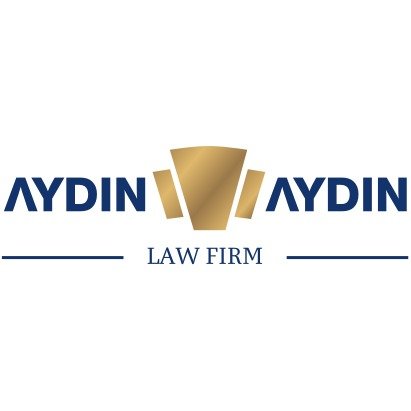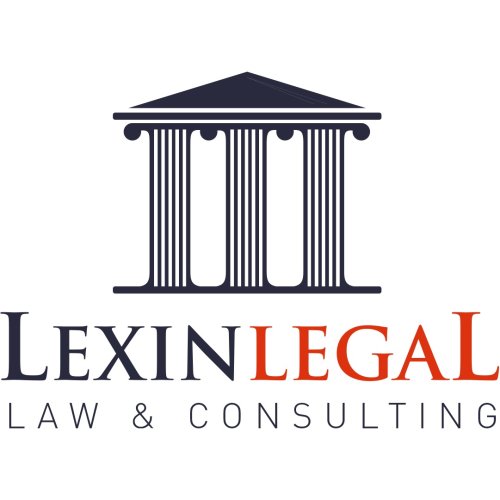Best Defamation Lawyers in Istanbul
Share your needs with us, get contacted by law firms.
Free. Takes 2 min.
List of the best lawyers in Istanbul, Turkey
About Defamation Law in Istanbul, Turkey
Defamation is a legal concept that refers to making false statements about someone that harm their reputation. In Istanbul, Turkey, defamation is regulated under the Turkish Civil Code and the Turkish Penal Code. These laws aim to protect individuals from false statements that can tarnish their reputation or honor. Defamation can have serious consequences, both in terms of legal implications and damage to personal and professional relationships.
Why You May Need a Lawyer
Seeking legal advice from a lawyer is crucial if you find yourself involved in a defamation case in Istanbul. A lawyer can provide you with proper guidance and help protect your rights throughout the legal process. Some common situations where you may need a lawyer include:
- If you have been falsely accused of defamation and need to defend yourself
- If someone has made false statements about you, damaging your reputation and you want to seek legal action
- If you have been sued for defamation and need to navigate the legal process
- If you want to understand your rights and legal options concerning defamation
Local Laws Overview
Understanding the key aspects of local laws related to defamation in Istanbul, Turkey is crucial. Here are a few key points to consider:
- Defamation can be categorized as either "libel" (written defamation) or "slander" (spoken defamation)
- Both libel and slander are considered criminal offenses in Istanbul, Turkey, and can result in fines and imprisonment
- To prove defamation, it is necessary to show that the statement was false, caused harm to your reputation, and was communicated to a third party
- There are certain defenses available in defamation cases, such as truth, fair comment, and privilege
Frequently Asked Questions
1. Can I sue for defamation if someone makes false statements about me online?
Yes, you can take legal action for defamation if false statements have been made about you online. Defamatory statements made through social media, online forums, or any other digital platform can be considered as libel, and you can seek legal remedies for such cases.
2. Can I be sued for defamation if what I said was true?
No, truth is an absolute defense against defamation claims. If you can prove that your statement was factually accurate, you cannot be held liable for defamation. However, it is important to gather evidence to support your claim of truth.
3. How long do I have to file a defamation lawsuit in Istanbul, Turkey?
In Istanbul, the statute of limitations for filing a defamation lawsuit is typically two years. It is essential to consult with a lawyer promptly to determine the specific deadlines in your case and avoid missing the opportunity to take legal action.
4. Can I settle a defamation case out of court?
Yes, it is possible to settle a defamation case out of court through negotiation or alternative dispute resolution methods. This can help you reach a resolution faster and avoid the time and expense of a lengthy court process. Consulting with a lawyer can assist you in exploring settlement options.
5. What damages can I claim in a defamation lawsuit?
If you succeed in a defamation lawsuit in Istanbul, you may be eligible to claim several types of damages, including compensation for harm to your reputation, emotional distress, and any financial losses resulting from the defamatory statement. Consult with a lawyer to understand the specific damages applicable to your case.
Additional Resources
For further information and assistance regarding defamation in Istanbul, Turkey, you may find the following resources helpful:
- Istanbul Bar Association: The Istanbul Bar Association can provide recommendations for reputable defamation lawyers in the city.
- Turkish Justice Ministry: The Turkish Justice Ministry's website offers valuable information on the legal system and laws, including defamation.
- Turkish Civil Code: Referring to the Turkish Civil Code can provide you with detailed insights into defamation regulations in Istanbul, Turkey.
Next Steps
If you require legal assistance in a defamation case in Istanbul, Turkey, it is recommended to take the following steps:
- Consult with a defamation lawyer who specializes in Turkish law
- Provide the lawyer with all relevant evidence, including any written or recorded defamatory statements
- Discuss your legal options, including the possibility of a settlement or pursuing a court case
- Follow your lawyer's guidance throughout the legal process
- Maintain open communication with your lawyer and promptly respond to any requests or inquiries
Lawzana helps you find the best lawyers and law firms in Istanbul through a curated and pre-screened list of qualified legal professionals. Our platform offers rankings and detailed profiles of attorneys and law firms, allowing you to compare based on practice areas, including Defamation, experience, and client feedback.
Each profile includes a description of the firm's areas of practice, client reviews, team members and partners, year of establishment, spoken languages, office locations, contact information, social media presence, and any published articles or resources. Most firms on our platform speak English and are experienced in both local and international legal matters.
Get a quote from top-rated law firms in Istanbul, Turkey — quickly, securely, and without unnecessary hassle.
Disclaimer:
The information provided on this page is for general informational purposes only and does not constitute legal advice. While we strive to ensure the accuracy and relevance of the content, legal information may change over time, and interpretations of the law can vary. You should always consult with a qualified legal professional for advice specific to your situation.
We disclaim all liability for actions taken or not taken based on the content of this page. If you believe any information is incorrect or outdated, please contact us, and we will review and update it where appropriate.

















